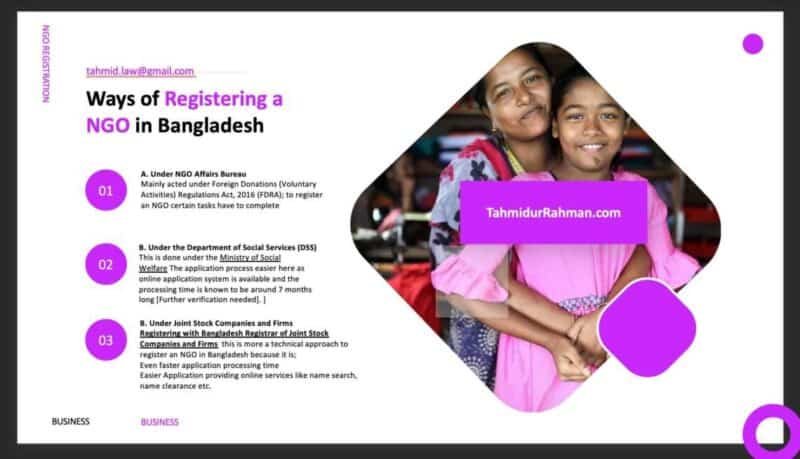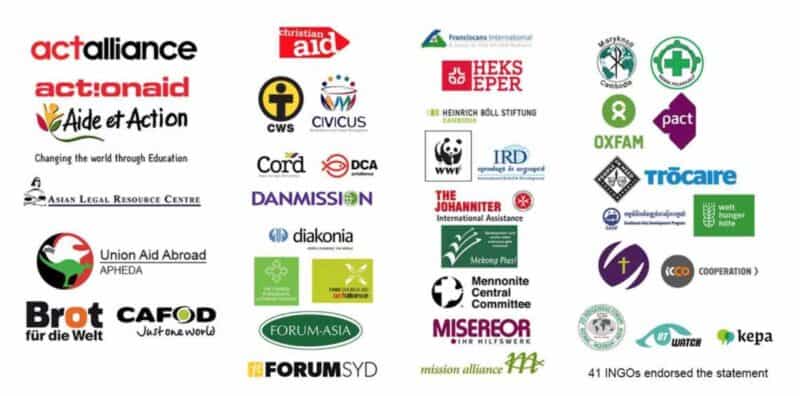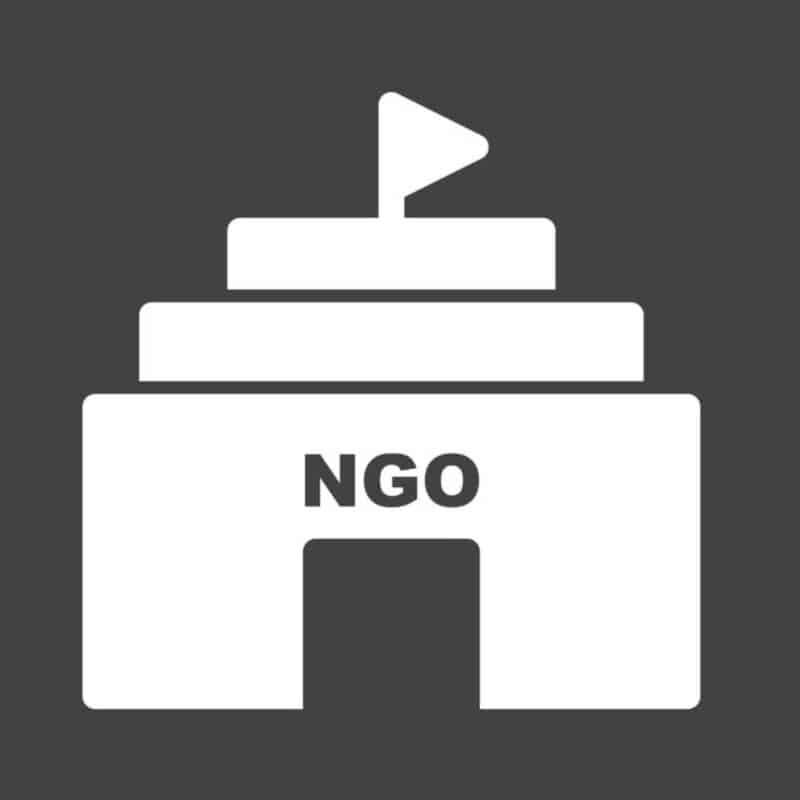NGO registration in Bangladesh- A complete guide in 2023- Everything you need to know

Tahmidur Rahman, Senior Associate, TR Barristers in Bangladesh
2 Jan 2020
This post in details will explain in details about NGO and INGO registration in Bangladesh, the timeline, the concerns and types of NGOs , NGO’s Affairs Bureau, key parts of the Foreign Donations (Voluntary Activities) Regulations Act, 2016 (FDRA) Act, and the compliances to maintain with Joint Stock Companies and Firms, Department of Social Services with clear directions and infographics.
NGO’s in Bangladesh
Non-governmental organizations (NGOs) play an significant role in developed countries ‘ economic growth. They provide services to society through community development welfare work, national disaster assistance, sustainable system development, and grassroots movements. They are taking numerable steps to improve our community.
With the record of being the most densely populated nation on earth and a poor workforce, Bangladesh faces a huge challenge to meet the demands of its ever-increasing population.
For coping with such population, Organisations are working as the foundation of society. There are several types of organizations, but under the main heading, they can be categorized into three parts:
- Government organisations,
- private organizations and
- non-governmental organisations.
NGO’s have a positive outlook to the society compared to two other wings of the societal organisations. Many activists also dream of making their own NGO to improve society, but by no way build a child’s play. Now, to grasp the whole premise, we will need to recognize a few things.
What is an NGO?
The Non-Governmental Organization is a legal body that is not a direct member of the government, independent of government power, and not a direct political competitor.
The NGO was first formally visualised in Article 71 of the Charter of the United Nations, which states: ‘The Economic and Social Council may make appropriate arrangements for consultation with non-governmental organisations.’
A non-governmental organization is a legal body that is not a direct part of a government, independent of government control, and not a direct political competitor.
Differences between an NGO and other organisations
In Today’s world, modern organisations are very nuanced in terms of thoroughness, for example, NGOs are working with the government, and some of them are also binding.
So things blur time to time, in general, NGO’s are considered to be non-profit, non-government-dependent, and to serve their specific function, but they may be a helping hand of the government, collect money, and make profit in order to fulfill their function.
They may not abide by company law or business law, but may be interested in the business as a separate agency of a related NGO. So close observation is required on both the de facto and the de jure activities of the NGO.
Thus, it can be inferred that the process of creation, the mission and the activities of an entity are the final proof that it is an NGO; that it must not be a completely viable business agency, or that it must serve the purpose of its constitution and function accordingly to the part of the government under which it operates for government purposes.
Conventional NGO programs in Bangladesh
On the basis of funding, we can further extend the scope of NGOs, such as locally sponsored, government-funded, foreign government-supported, national and international organizations. NGOs conventionally cover a wide range of sectors.
Typical NGO and INGO programs in Bangladesh are:
- BINGO: business-friendly international NGO (example: Red Cross)
- ENGO: environmental NGO (Greenpeace and World Wildlife Fund)
- GONGO: government-organized non-governmental organization (International Union for Conservation of Nature)
- INGO: international NGO (Oxfam)
- QUANGO: quasi-autonomous NGO (International Organization for Standardization [ISO])
In addition to that the other general scopes are:
- Human Rights
- Woman Rights
- Humanitarian Situation
- Health issue
- Education Sectior
- Responding to health crises
- Environmental issues
- Economic programs
- Skills development
- Local development
- Addressing Social issues
- Religious perspective ( support and help)
- Research purpose
- Survey and Study
If you want to know how to open a company in Bangladesh or about company formation click here!
How to register an NGO in Bangladesh?
To get an NGO or an INGO registered in Bangladesh or an organization willing to operate or obtain foreign funding for the purpose of undertaking or carrying out any voluntary operation, it is imperative that such an organization be registered with the authority concerned and comply with the Government’s requirements.
According to the laws of Bangladesh, the term “voluntary activity” can be specified as “an activity undertaken or carried out by any person or organization of his or her own free will to provide agricultural, relief, missionary, educational , cultural, vocational, social, welfare and development services, and includes any activity that the Government can, from time to time, consider to be a Voluntary activity.”
NGO and INGO registration in Bangladesh
Any entity whose activities fall within the ambit of the definition mentioned above needs to have it registered to carry out its operation in Bangladesh.
In order to register an International Non-Government Organization (INGO) or local based Non-Government Organization (NGO), an application needs to be filed with the concerned authority.
The NGO Affairs Bureau (NGOAB) (which is under the Ministry of Social Welfare of Bangladesh) and the Ministry of Home Affairs shall be the relevant authorities in Bangladesh in this regard.
However, for example the Ministry of Health & Family Welfare or Ministry of Disaster Management and Relief or any other relevant authority which administers the entity’s activity shall also play a vital role.
An NGO in Bangladesh can be registered in three ways:
A. Under NGO Affairs Bureau
B. Under the Department of Social Services (DSS)
C. Under Joint stock companies and firms
“Tahmidur Rahman – Tahmidur Rahman Remura Wahid Parnters is Considered as one of the leading firms in NGO and Non-profit Law in Dhaka, Bangladesh”
Carpe Noctem Bangladesh
If you want to know everything about Charitable Trust in Bangladesh
Process of NGO registration Under NGO Affairs Bureau in Bangladesh
Firstly, the registration of the INGO or the NGO must be carried out by the body of the NGOAB concerned. Application in the specified form shall be made to the NGOAB along with payment of the required fee and all related documents such as operation report, letter of intent, constitution, copy of the Treasury Challenge with respect to payment of registration fees, etc.
Upon submission of the application to the NGOAB, it shall be forwarded to the Ministry of Social Security and also to the Ministry of Home Affairs for review and inspection of the documents submitted.
Upon receipt of the papers, the Ministries concerned shall nominate the Special Branch of Police and National Security Intelligence to carry out a security check on the applicant and on such a matter of inspection as clearance forwarded to the Ministry of Home Affairs, provided that the approved bodies are pleased with their enquiries.
Once the approval has been issued to the NGOAB, it shall continue with the audit and final inspection of the documents. Acted mainly under the International Donations (Voluntary Activities) Regulations Act, 2016 (FDRA); to register an NGO, certain tasks must be completed; (as stated in section 4 of the FDRA) :
- FD-1 Form (signed by Chief Executive in Bangladesh) – 9 copies
- Certificate of incorporation in the Country of origin – 3 copies
- Constitution – 4 copies
- Activities Report – 6 copies
- PIan of Operation (Work/Organogram) – 4 copies
- Decision of the committee/ Board to open an office in Bangladesh – 4 copies
- Letter of Appointment of the Country Representative – 4 copies
- Copy of Treasury challan in support of depositing 50000 Taka for local NGO and USD $ 9,000 or Equivalent TK amount for foreign NGO in the Code 1-0323-0000-1836 and 15% Vat Code No (1-1133-00 35 -0311) – 3 copies
- Deed of agreement stamp of TK.300 with the landlord in support of opening the office in Bangladesh – 3 copies
- List of Executive Committee (foreign) – 4 copies
- Letter of Intent – 5
Note: AII documents from abroad should be notarized by Justice of peace or attested by Bangladesh Embassy.

Foreign Donations (Voluntary Activities) Regulations Act, 2016 (FDRA)
As per, Foreign Donations (Voluntary Activities) Regulations Act, 2016 (FDRA), under section 2(1) and foreign donations under section 2(5) which is very important to operate an NGO in Bangladesh.
- Section 3 of the Act made it necessary for NGOs to register where there is some international transaction. This act shall take precedence over all other current and relevant legislation.
- Officials are to verify documents and authorize the NGO for a term of 10 years. It must be re-submitted in order to renew period 6 months before the end of the 10-year term. It placed certain barriers under section 5 to accept donations from certain individuals.
Section 6 stipulated that the appointment of International Consultant, Advisor or Officer and International Tours must be notified by the Government of their security clearance.
- Section 9 for the management of the account of foreign donations, as well as for each NGO and person, shall maintain its accounts in the specified manner and prepare an annual statement of accounts; (section 12) for the approved audit firms.
- Section 10 empowers the Government to carry out surveillance, monitoring and analysis of every NGO.
- Under section 15 the Act said if any NGO violates this law or any law of Bangladesh the can take appropriate action against that NGO.
Registration of NGO under the Department of Social Services (DSS)
This is done under the Ministry of Social Welfare The application process is simpler here as the online application system is available and the processing period is estimated to be about 7 months long [further verification needed]. But catch registration with DSS only allows you to work in Bangladesh only does it not allow you to receive foreign donations. Follow this link for more information and procedures. The main legal instruments are as follows:
1) SOCIAL WELFARE Organizations VOLUNTARY (REGISTRATION AND CONTROL) ORDINANCE, 1961
2) স্বেচ্ছাসেবী সমাজকল্যাণ সংস্থাসমূহ (নিবন্ধন ও নিয়ন্ত্রণ) বিধি ১৯৬২
An NGO or charity can be registered with the Ministry of Social Welfare’s Department of Social Services (DSS).
Registration, however, is only required for organizations that will provide welfare services to children, youth, women, families, physically or mentally handicapped, family planning, recreation, civic responsibility, released prisoners, juvenile delinquents, socially handicapped, beggars and the destitute, patients, the elderly or infirm, social work, or coordination of social welfare agencies.
Voluntary Social Welfare Agencies (Registration and Control) Ordinance, 1961, and related Rules, 1962.
Registration Procedure under Ministry of Social Welfare’s Department of Social Services (DSS):
Step 1: Obtaining name clearance from the appropriate office.
Step 2: Submit an application for registration to the authority using the prescribed form, ‘Form-B.’
Step 3: Submit all required documents, along with ‘Form-B.’
Step 4: Pay government fees such as Treasury challans, VAT, and so on.
Step 5: Application is forwarded to the appropriate Ministries.
Step 6: A security check is performed by a law enforcement agency, such as the Special Branch of Police or National Security Intelligence, among others.
Step 7: The Ministry inspects, monitors, and reviews the NGO.
Step 8: Review and final scrutiny by the DSS, followed by registration issuance if satisfied.
Step 9: The registration process with the Department of Social
Services may take 5-7 months, depending on the circumstances.

Registration of NGO through RJSC in Bangladesh
Registration with RJSC is a more formal approach towards registering an NGO in Bangladesh, but often deemed as more desirable because it offers:
1) Quicker response time for applications
2) Smoother application process:
The procedure is based on the SOCIETIES REGISTRATION ACT of 1860.The process of registration under the Societies Registration Act is as follows:
Seven or more persons associated in any literary, scientific, charitable, or other similar purpose may apply to the Bangladesh Registrar of Joint Stock Companies and Firms to form a society by subscribing to its memorandum of association, which must be accompanied by the society’s rules and regulations.
Step 1: First, you need to get a name clearance like a company name clearance. The next step in the process is the actual application for registration of the entity. This request must be submitted on paper along with all the necessary documentation (and the approval of the name clearance).
Step 2: Submit an application to RJSC for registration, along with the Memorandum of Association and a Clearance letter, as well as all other required documents.
Step 3: Payment of government fees is the third step.
Step 4: A security check is performed by a law enforcement agency, such as the Special Branch of Police or National Security Intelligence, among others.
Step 5: Inspection, monitoring, and evaluation of the NGO by the appropriate authorities.
Step 6: If all requirements are met, the authority will issue a registration.
Process of Registration of an association in Bangladesh under the Companies Act:
According to Section 28 of the Companies Act, 1994, an association can be incorporated as a non-profit company conforming to the rules and regulations of a company with limited liability when it obtains a license from the concerned authority, namely the Bangladesh Registrar of Joint Stock Companies and Firms under the Ministry of Commerce.
The procedure for obtaining RJSC registration is nearly identical to that described above. The government will grant a license if it is satisfied that the association will promote commerce, art, science, religion, charity, or any other useful goals, and that its profits or income will be used to further those goals without paying any dividends to its members. These types of welfare-oriented businesses can be formed as limited liability companies under the Companies Act of 1994.
Registration of Trusts:
‘A trust may be established for any lawful purpose, including charitable activity,’ according to the law. The trustees are in charge of looking after and managing the trust property in order to achieve the goals stated in the trust deed.
A Trust can be established for any lawful purpose, such as the benefit of children, the public good, religious purposes, or any other purpose by interested persons, whether legal or natural, with specific property, whether moveable or immovable, or a fund for the benefit of the community. The trustee/s are responsible for the care and management of trust property in order to achieve the purposes stated in the trust deed.
Relevant Statutes: – The Trust Act of 1882:
The Trust Registration Procedure:
Step 1: A trust can be created through a trust deed that specifies the author’s intention.
Step 02: In the trust deed, the author of the trust must state with reasonable certainty his intention to establish the trust, the purpose of the trust, the beneficiary, the trust-property, and transfers of trust property to the trustee.
Step 03: For the creation of a valid trust, certainty of words in unambiguous terms indicating intention, subject matter, and specific objective is required.
Step 04: The concerned organization can begin operations after the trust deed is registered. For example, trust deeds are registered at the Sub-Registrar Office where the NGOs’ headquarters are located.
This Act provides for the registration of foundations, trusts, and other charitable organizations.
Charitable trust reporting regulatory authority:
There is currently no regulatory authority to which charitable trusts are required to report, so registration or license from other Non Profit Organization regulatory or registration authorities is required for their smooth operation. Trusts are required by law to report to that authority in such cases.
Trusted management of NGOs or charities:
A Board of Trustees manages a trust by protecting the trust property and enhancing it to its maximum benefit, as defined in the trust deed.
Registration for Waqf:
The concept of Waqf in Muslim Law is similar to the concept of trust in English. In this case, the owner of a property, both movable and immovable, can create a waqf for the use of beneficiaries in perpetuity through a declaration in an instrument. In accordance with the terms of the waqf instrument, the waqf is administered by a trustee known as a mutawalli.
Concerning Legislation:
Waqfs Ordinance of 1962
Registration Procedure for Waqf:
Step 1: The Mutawallis waqf property must file an application with the Waqf Administrator’s office.
Step 2: Upon receipt of the application, the Administrator will proceed to register the waqf property, after which he will keep detailed information about it in his register, including the deeds, the name of the mutawalli, and the rules of succession to the office of mutawalli.
Shortcomings and Recommendations:
Various NGOs or charities have been formed and run under the aforementioned Acts, but these same Acts have been causing complications at this time.
It should be noted that there is no uniform law governing the formation of an NGO; rather, different types of laws, rules and regulations, and bodies govern the formation of the same, depending on its nature, objectives, purposes, constitution, resolutions, and so on. As a result, a consolidated uniform law is critical for the smooth formation, operation, and legalization of NGOs in Bangladesh.
“As per, Foreign Donations (Voluntary Activities) Regulations Act, 2016 (FDRA), under section 2(1) and foreign donations under section 2(5) which is very important to operate an NGO in Bangladesh.”
Frequently Asked Questions about NGO and INGOs in bangladesh
In regards to NGO registration in bangladesh people also ask these questions frequently, hence this FAQ content block is dedicated to answering your questions.
General Questions about NGO registration in bangladesh
What is the rule of a NGO?
Every NGO in Bangladesh is legally mandated to document the Memorandum of Understanding. It includes the name and address of the NGO, the mission and goals, specifics of the governing body, information on human resources and personnel, rules and regulations, administrative laws and procedures.
How many NGO's are there in Bangladesh?
3000+.
Currently, approximately 3000+ (including local and international) NGOs are registered under the legislation of Goverment of Bangladesh. A total of 240+ foreign Non-government organizations (NGO) of 30+ countries have been operational in the country
Which is the biggest NGO in Bangladesh?
Based on the number of employees, BRAC is considered as the largest NGO (non-governmental development organisation) in the world not only in Bangladesh!
What is the model NGO guide?
United Nations Model NGO Guide. Since the founding of the United Nations, NGOs have been core members of the policy and implementation process. NGOs or non-governmental organizations are non-profit organisations focused on humanitarian, human rights and sustainable development issues around the world.
How many members there should be in my NGO?
What is the head of an NGO called?
The Board of Directors of the NGO is at the top. The NGO Board is a legal requirement in most countries to be formally registered with local authorities. Most NGOs stipulate that membership of the Board is voluntary and non-remunerative. Board meetings shall be held closed, while written processes, reports and minutes may be made available for the purposes of accountability.
Who are considered as top managements of a NGO?
The top management of an NGO consists of three entities –
- the Board of Directors,
- the General Assembly, and
- the Executive Director.
Who are responsible for the day to day functioning of an NGO?
The staff members of the NGO shall be responsible for the day-to-day operation and execution of its programs and projects. They report to the Executive Director, who is ultimately responsible for the operations of the NGO. (See Figure 3) The staff members of the NGO fall into three groups-responsible for activities related to (1) management, (2) advertisement and (3) programs / projects.
How do NGO's get funding in Bangladesh?
NGOs in Bangladesh may receive, coordinate and collect funds through a variety of sources, procedures, initiatives, ventures and activities: grants through funding agencies through ventures. Grant from the International Development Agency and Fund Raising from the Corporate Department under the CSR.
What are the differences between a NGO and a Non-profit?
The NGO is a non-governmental organisation. A non-profit organization uses the excess funds for the benefit of the organization, rather than splitting them between the members and the owners of the company. Examples of NPOs are performing arts organisations, trade unions and charities.
NGO and INGO registration at Tahmidur Rahman TRW:
The legal team of Tahmidur Rahman, TR Barristers in Bangladesh TRW are highly experienced in providing all kinds of services related to registering NGO, non profit and charitable trust in Bangladesh . For queries or legal assistance, please reach us at:
E-mail: info@trfirm.com
Phone: +8801847220062 or +8801779127165
Address:
Have a Different Question?
Email us anytime : info@trfirm.com
Or call — +8801847220062 or +8801779127165
Tahmidur Rahman | Law Firm in Dhaka
Affiliated with TR Barristers in Bangladesh, A full service multi-directional law firm in Dhaka.
© 2018-2023 Tahmidur Rahman Matte IT Ltd.
NEED HELP?
Privacy Policy
Disclaimer
Client Login
Sitemap








